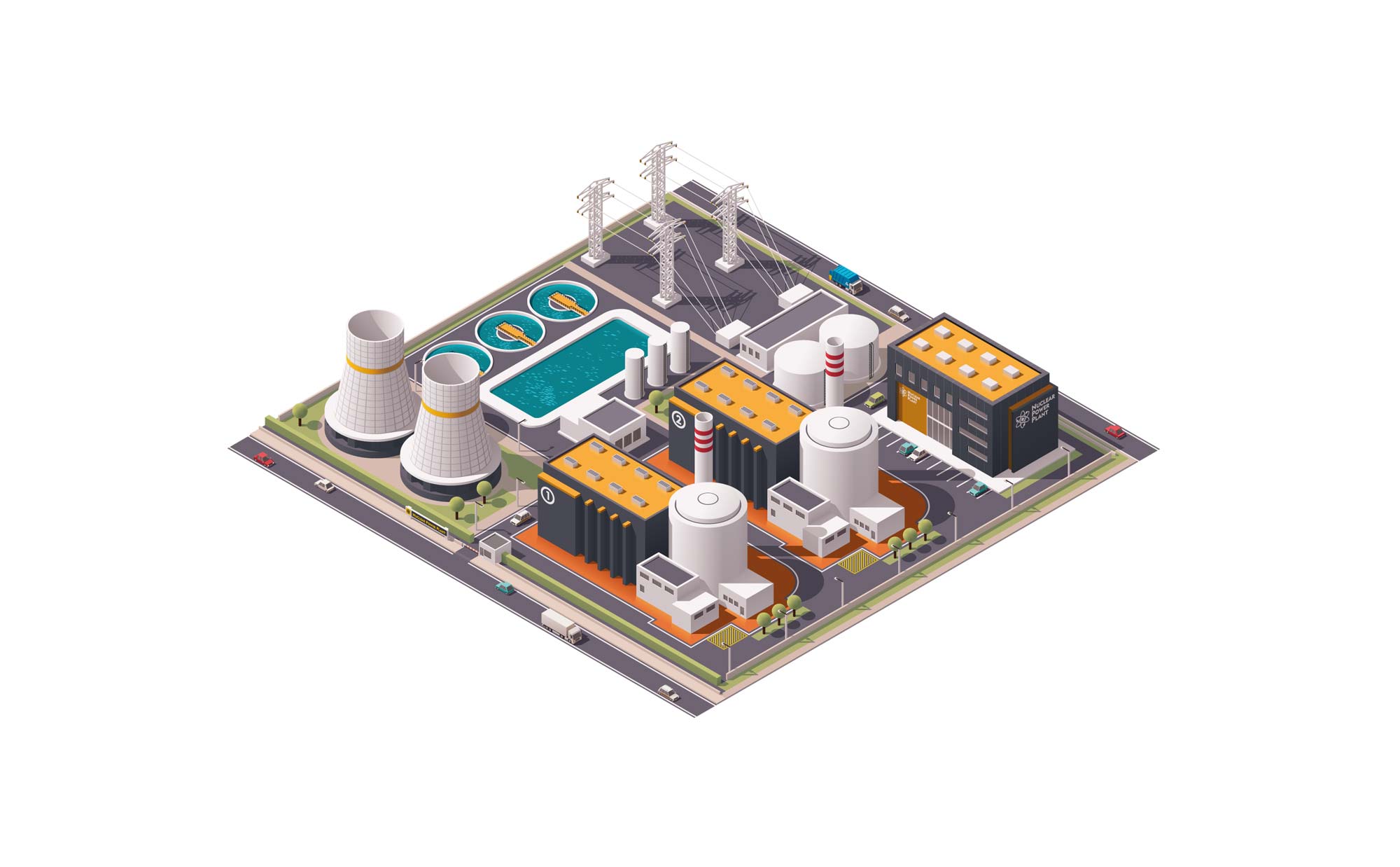You are here: Home » Energy » Nuclear
Lucideon's expertise spans the nuclear industry, from new materials development and selection, and comprehensive testing and analysis to additive manufacturing support and failure analysis. These can be applied to 10CFR50 Appendix B commercial-grade dedication support, detrimental materials analysis, new material, vendor, process and product qualifications, failure investigations and waste management programs.

The rigorous quality assurance requirements mandated by ISO 17025, Nadcap (aerospace and defense industry) and 10 CFR 50 Appendix B (nuclear utility industry) are applied to each and every job we perform, regardless of whether it requires conformance to any of these accreditations.
Materials and Process Consultancy
- Thermal aging and endurance studies
Analysis of the behavior of materials inadvertently exposed to safety-related environments in order to assess degradation potential and detrimental effects.
-
Corrosion assessments
Metallurgical evaluation of components to determine if the root cause of premature corrosion damage is due to material or manufacturing deficiencies, or to environmental factors.
- Alloy & material selection
Expedite selection of materials fit for custom applications, and develop incoming material specifications to ensure supplier quality.
-
Failure analysis
Quickly identify contaminants and unknown materials and determine the root causes of failures in motors, generators and other electrical equipment.
- Petrographic analysis & concrete condition assessment
Evaluating the quality of workmanship, assessing damage to determine if it is cosmetic or structural, identifying appropriate repair materials and procedures, and determining the root causes of premature failures in concrete structures such as cooling towers and spent fuel tanks.
Technology Platforms
- MIDAR Waste Encapsulation
Utilize MIDAR, a revolutionary sustainable geopolymer technology that can be used for numerous applications, including encapsulating solid and liquid waste streams into an inorganic solid matrix that is formed during a low temperature chemical reaction.
- Waste Stabilization through Glass Encapsulation
We are developing new ways of immobilizing waste through vitrification and encapsulation.
Testing & Characterization
- Commercial-grade dedication verification testing
Verification of material properties, such as chemical composition, physical dimensions, mechanical strength, bond strength and electrical insulation properties, of off-the-shelf components such as bearings, tapes, resins, gaskets, cables, greases, and solder.
- Contamination identification
Through chemical composition of materials, determination of whether the issue is with component degradation or introduction of contaminants.
- Material irradiation effect studies
Evaluation, via controlled exposure and testing protocols, of the degradation potential of material properties for components used in irradiated areas.
- Conventional and additive manufactured part qualification
Analysis of powder materials and raw stock, metallurgical evaluation, chemical analysis, mechanical property characterization, failure analysis and recommendations for improvement.
- Detrimental effect analysis & hydrogen content
Detrimental material analysis to ensure compliance with safety standards, including MIL-STD-2041E(SH), and STR-4P38. This includes analysis of halogens (total and leachable), sulfur, phosphorous, low melting point metals and mercury.
- Cleanliness evaluations